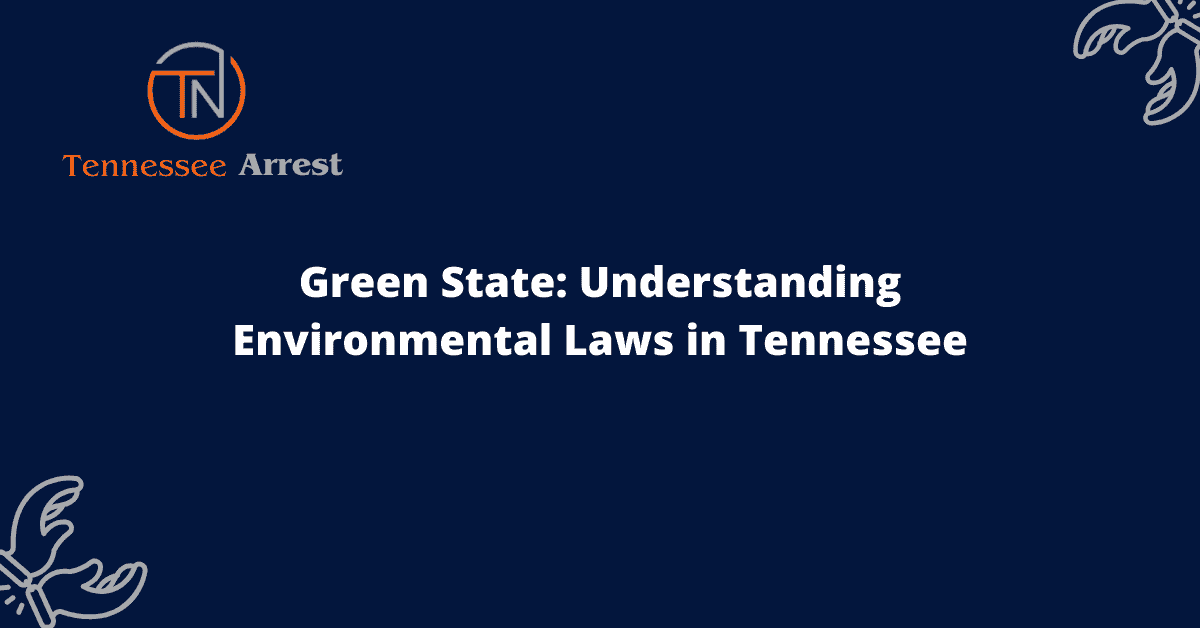Green State: Understanding Environmental Laws in Tennessee
Understanding environmental laws is crucial in today’s world. With increasing concerns about climate change and the depletion of natural resources, it is more important than ever to have a comprehensive understanding of the laws and regulations that govern our environment. In Tennessee, a state known for its stunning landscapes and diverse ecosystems, there are specific laws in place to protect and preserve the environment.
Green State is a comprehensive guide that aims to educate individuals, businesses, and organizations about the environmental laws in Tennessee. Whether you are a student, a lawyer, or simply a concerned citizen, this guide will provide you with the knowledge and resources you need to navigate the complex world of environmental regulations. From air and water quality to land use and conservation, Green State covers a wide range of topics to ensure that you have a thorough understanding of the laws that impact our natural environment.
The Importance of Environmental Laws
Environmental laws play a crucial role in today’s world, especially with the increasing concerns about climate change and the depletion of natural resources. These laws are designed to protect and preserve the environment, ensuring the sustainability of our planet for future generations.
Tennessee’s Unique Environmental Landscape
Tennessee is renowned for its stunning landscapes and diverse ecosystems. From the Great Smoky Mountains to the Mississippi River, the state is home to a wide range of natural wonders that need to be protected. Understanding the specific laws and regulations that govern Tennessee’s environment is essential for ensuring the preservation of its natural beauty.
Air and Water Quality Regulations
One of the key areas covered by Tennessee’s environmental laws is air and water quality. These regulations aim to protect the health and well-being of both humans and the environment by setting standards for emissions, pollution control, and water treatment. Understanding these laws is vital for industries, businesses, and individuals to ensure compliance and minimize their impact on the environment.
Land Use and Conservation Policies
Tennessee’s land use and conservation policies are designed to strike a balance between development and preservation. These laws regulate activities such as zoning, urban planning, and land management to ensure sustainable growth while safeguarding important natural habitats and ecosystems. Familiarizing oneself with these regulations is essential for anyone involved in land development, construction, or conservation efforts.
Resource Management and Conservation Efforts
Another critical aspect of Tennessee’s environmental laws revolves around the management and conservation of natural resources. These laws aim to ensure responsible use of natural resources, such as forests, minerals, and wildlife, while promoting sustainable practices. Understanding these regulations is crucial for industries, individuals, and organizations involved in resource extraction, agriculture, or conservation initiatives.
Environmental Compliance and Enforcement
Finally, it is essential to understand the enforcement and compliance mechanisms associated with Tennessee’s environmental laws. This includes the roles and responsibilities of regulatory agencies, the process of obtaining permits, and the penalties for non-compliance. Having a comprehensive understanding of these aspects will help individuals and businesses navigate the complex world of environmental regulations and avoid potential legal issues.
FAQs
What are the environmental laws in Tennessee?
Tennessee has several environmental laws in place to protect its natural resources and promote sustainable practices. These laws cover air quality, water pollution, waste management, and land conservation.
How does Tennessee regulate air quality?
Tennessee has implemented air quality standards and regulations to control emissions from industries, vehicles, and other sources. The state monitors air quality and enforces measures to reduce pollutants and improve public health.
What are the water pollution regulations in Tennessee?
Tennessee has laws that aim to prevent water pollution and ensure the quality of its water bodies. These regulations include permits for wastewater discharges, stormwater management, and protection of drinking water sources.
How does Tennessee manage waste?
Tennessee has regulations for the safe disposal and management of various types of waste, including solid waste, hazardous waste, and electronic waste. The state promotes recycling and proper waste handling to minimize environmental impacts.
What is the role of the Tennessee Department of Environment and Conservation?
The Tennessee Department of Environment and Conservation (TDEC) is responsible for enforcing environmental laws and regulations in the state. TDEC monitors compliance, conducts inspections, and provides guidance to businesses and individuals.
How does Tennessee promote land conservation?
Tennessee has programs and initiatives to protect and conserve its natural lands. The state encourages landowners to participate in conservation easements, which help preserve important habitats, forests, and agricultural lands.







